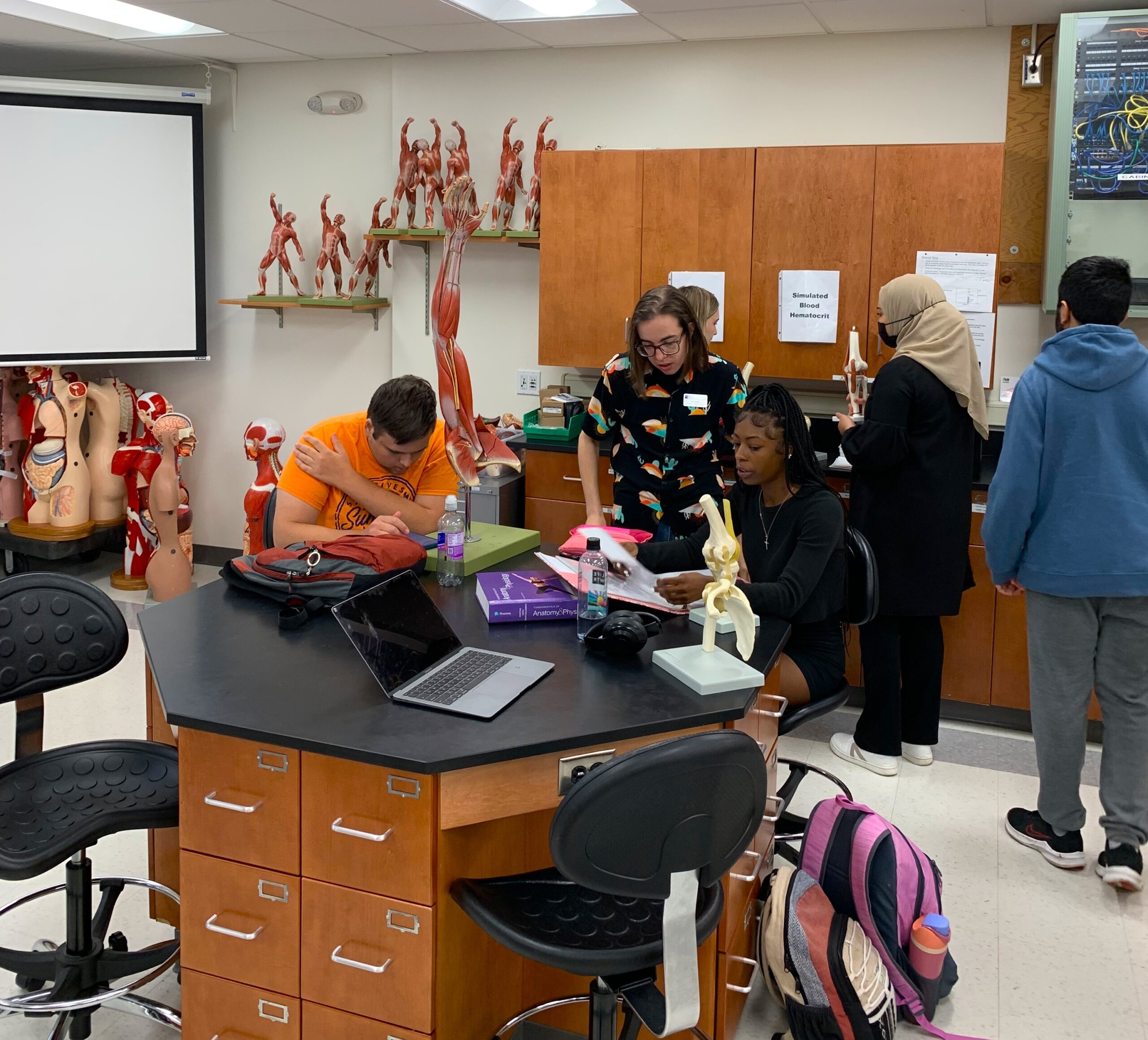Faculty find social media helps, hurts learning opportunities

Kurt Oberreither
-Staff Writer-
Students, staff, faculty and visitors can “like” STLCC- Meramec to receive updates via Facebook or follow the district on Twitter and receive tweets.
A recent study from the Collegiate Learning Assessment found that 45 percent of college students don’t significantly improve critical thinking, complex reasoning and writing by the end of their sophomore years. Adjunct sociology instructor Colin Suchland said he doesn’t think social media is the culprit.
“I’m firmly of the belief technology isn’t making us dumber; it’s more about human intention than tools,” Suchland said. “You can use a hoe to hoe your garden or you can whack someone on the head with it.”
Suchland said Facebook and school can work cohesively through discussion and student interaction.
However, he said with the availability of access to things like Facebook, it’s inevitable that students will use it in class but not favorable.
“When you’re not mentally in my class, that’s upsetting,” Suchland said. “I do ask students to use [laptops] for strictly notes.”
Meramec student Erin Bowling said she usually checks Facebook updates twice a day and that it is a “little bit” of a distraction. “Some of my classes are online, so instead of writing a paper, I’ll be on Facebook instead,” Bowling said.
Meramec Counselor Jason Duchinsky said, students facing problems with social media affecting their personal or school life haven’t stepped through his door.
“Students haven’t presented [me] with spending too much time on Facebook,” Duchinsky said. “It makes sense that I wouldn’t but it’s probably still an issue for students much more than they’re willing to disclose or share.”
Meramec Academic Advising has a Facebook and Twitter page. Advisor Tracy Woodruff, who is partly responsible for updating the accounts, said the department stepped into the realm of social media about a year ago.
“We wanted to have a way to informally share advising information with our students in an efficient way,” Woodruff said. “Students today use Facebook more than e-mail so it was a good way for us to reach out to them with timely information about advising services, deadlines and registration reminders, advising appointments, and special advising events.”
Woodruff said she thinks other departments could follow suit. She said others already have a social media presence including the Meramec Library, Graphic Design and Music Departments, and the Center for Visual Technology.
In the computer lab on the second floor of Business Administration, Doris Wright oversees students using the computers.
Wright said she can monitor their activity on the desktop at her desk. Furthermore, Wright said during midterm and finals week, nobody is allowed to access Facebook, YouTube or any other form of entertainment on the browser.
“Students 100 percent cannot use a computer when it could be used for something more useful,” Wright said. “It’s restricted.”
Duchinsky said Facebook sometimes plays such a heavy role in students’ lives that the deletion of an account can be a precursor to a serious problem.
“If someone’s feeling suicidal and they go and commit essentially Facebook suicide—not they just drop people as friends or end communication but that they pull the plug on the entire thing—that’s something we look out for,” Duchinsky said.
Also, Duchinsky said when the relationship between instructor and student moves to things like Facebook, the line between personal and professional becomes blurry.
Suchland said he wouldn’t “friend” a current student on Facebook and that he only has two past students as contacts on the website. “I don’t do it out of respect for the student-teacher relationship,” Suchland said.
Duchinsky said like anything, social media has its advantages and disadvantages.
“There’s potential in Facebook, sometimes beneficial, sometimes maybe not. Some distractions are necessary. Our lives are hard. So being able to just zone out, that’s useful to people, but you certainly can have too much of what appears to be a good thing,” Duchinsky said.











